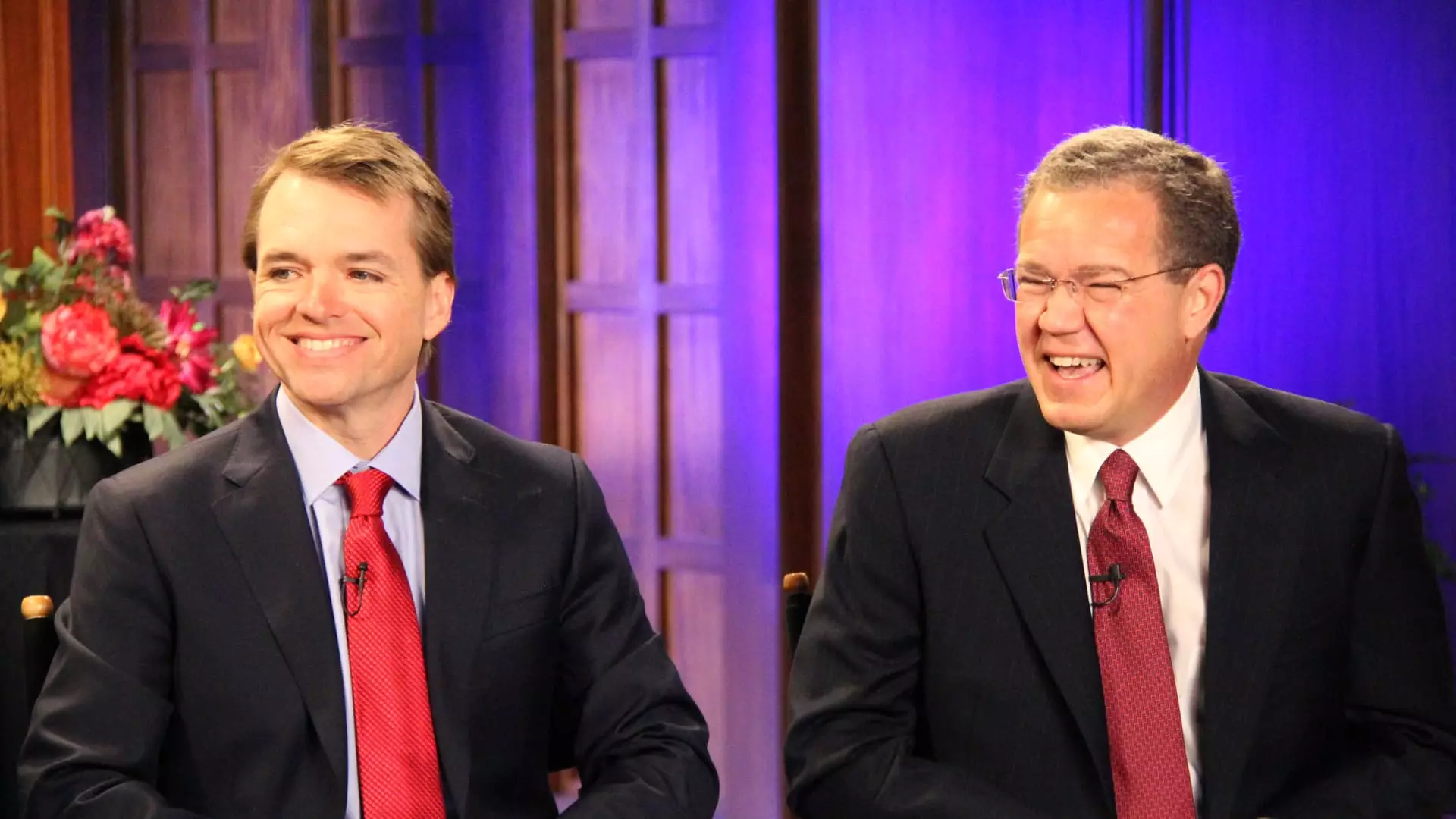The world of investing stands at a precipice as it reads the banners announcing the impending retirement of Warren Buffett, a titan who has dominated the realm of finance for over six decades. As he prepares to step down as CEO of Berkshire Hathaway by the end of 2025, the pressing question arises — who will captain the $275 billion portfolio that has been expertly navigated by Buffett’s sage wisdom? His choice of successor, Greg Abel, instills both hope and apprehension, stirring conversations that reveal wider anxieties in the investment community. Critics may point out that while Buffett carries an unparalleled legacy, Abel’s track record in stock selection remains shrouded in uncertainty.
Buffett’s decision to pass the torch occurs at a moment when relational capital is more important than ever; the trust between leadership and shareholders is fragile. With Abel’s stratospheric ascent to the helm of Berkshire, murmurs of doubt arise regarding whether he can emulate Buffett’s skill in digging for value in companies. Though his operational capabilities are commendable, parallels to Buffett’s investment acumen are uneasy at best. Looking ahead, Abel must decode this complex narrative of replacing an irreplaceable figure — a task that may well become a crucible for his own reputation.
Greg Abel’s Operational Focus: A Mixed Bag
The question swirling through the minds of Berkshire shareholders is not merely who will oversee operations but also who will make astute investment decisions within the portfolio. While Abel has a stellar background in operational management, he may not inherit the same flair for navigating the equity markets that Buffett demonstrated with grace and precision. According to financial analysts, Abel’s future role appears more about capital allocation and strategic mergers and acquisitions than the minutiae of stock selection. If this holds true, how will Berkshire’s entrenched approach to value investing adapt under Abel’s stewardship?
In a world rife with volatility, Abel’s stated commitment to uphold Buffett’s patient investing philosophy raises eyebrows. It glosses over a fundamental question: can a leader whose expertise lies in operations pivot to execute investment strategies that demand sharp intuition and market foresight? The dichotomy between operational prowess and investment flair is jarring and could be a recipe for challenges ahead. The likelihood of him leaning on Berkshire’s investment lieutenants, Todd Combs and Ted Weschler, only underscores the burgeoning dependence on other minds to steer what Buffett alone previously navigated.
Investment Lieutenants: The Wildcard Factors
The presence of Combs and Weschler adds layers of complexity as well as potential solutions to the boardroom quandaries. Each has independently managed sizeable portions of Berkshire’s investment funds, but questions linger about their consistency and recent performance. Are they truly poised for a greater role, or do they represent a mere facade of stability? Their impressive historical returns scream of potential, but their recent record against Berkshire’s benchmarks casts shadows over their futures.
When contemplating their future positions, could a newly defined role, such as a chief investment officer, be the solution that Berkshire desperately seeks? With rumors swirling about the promotion of Weschler into such a role, his successful background raises expectations yet again. The weight of expectation looms large; all eyes are on their ability to deliver results without the guiding hand of Buffett, the ultimate barometer of investment excellence. This brings up critical discussions around what departure from Buffett’s methodologies could mean in terms of risk management and stakeholder trust going forward.
A Fragile Future: Uncertainty Beckons
Compounding matters, analysts are voicing concerns that Abel’s lack of a visible record in stock-picking could diminish shareholder confidence. The ambiguity surrounding the management of Berkshire’s stock portfolio could play a detrimental role in the short-term performance of the already massive conglomerate. If errors arise, the backlash may not only affect the stock prices but also the reputation that Buffett painstakingly erected during his tenures.
As the investment landscape evolves, so does the philosophical approach employed by companies like Berkshire. In a rapidly changing market environment filled with rival investment strategies, could Berkshire’s traditional framework be at risk? This inherent hesitancy may well represent the delicate balance between innovation and convention that Abel must navigate as he embarks on this momentous journey. Ultimately, the path forward remains rife with uncertainties as shareholders brace themselves for a new chapter, one that is untethered from the guiding philosophies of Warren Buffett.

